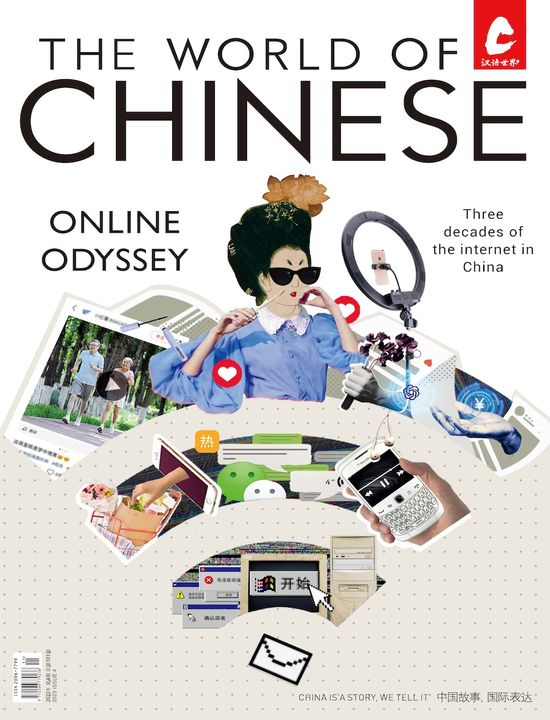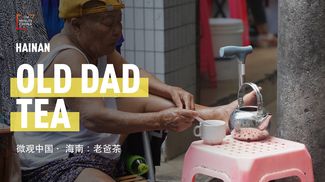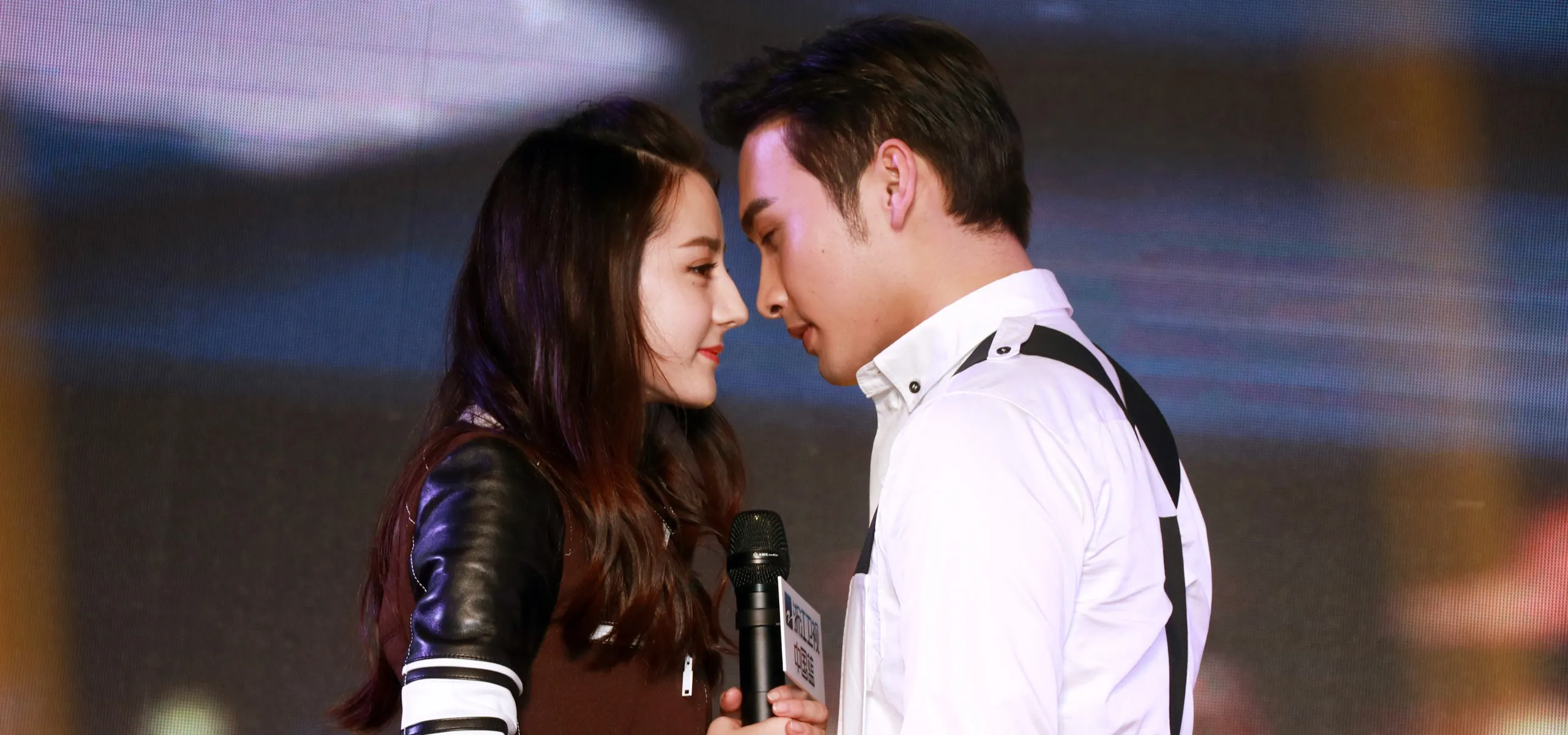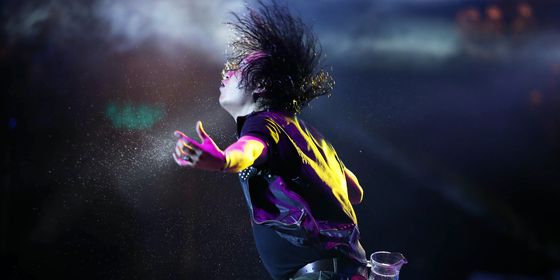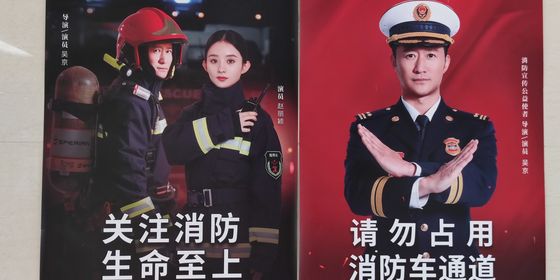China's super fans have a range of slang to describe their love of fictional TV couples
For some of the most committed members of China’s fan communities, worshiping one celebrity is just not enough. Banging their fists on the table and screaming out: “I am falling into love (我已经陷入爱情 Wǒ yǐjīng xiànrù àiqíng);” or short of breath, sending obscure messages to each other like “awsl,” the pinyin abbreviation for “啊我死了 (Ā, wǒ sǐ le, Ah, I’m dead),” these are CP fans (CP粉 CP fěn).
CP is an abbreviation for “couple,” and is sometimes phoneticized as “西皮 (xī pí).” Rather than pursuing a single star, CP fans, analogous to “shippers” in the West, are infatuated with pairs of celebrities or fictional characters whom they imagine to be in relationships, either heterosexual or same-sex.
For example, fans of the TV drama You Are My Glory, which tells the story of a romance between an aerospace engineer and an actress, were bewitched by eye contact and close interactions between actors Yang Yang and Dilraba Dilmurat. They say that the romantic atmosphere created by the “on-screen couple (荧幕情侣 yíngmù qínglǚ)” made them feel “surrounded by pink bubbles (被粉红泡泡包围了 Bèi fěnhóng pàopao bāowéi le),” as if they were living in a manga. Even the faintest hint of interaction between their CP could make fans cry out: “My CP is giving out sugar (我的CP发糖啦 Wǒ de CP fā táng la)!” with “sugar” referring to sweet moments.
CP fans are desperate for the relationship on screen to extend into real life, so they tend to dive deep into the two actors’ relationship, finding tiny clues to demonstrate “我的CP szd (Wǒ de CP szd, My CP is real),” with “szd” as the pinyin abbreviation of “是真的 (shì zhēn de).”
Male CPs (男男CP nánnán CP) also attract attention. When actor Hu Ge and Huo Jianhua, who played two friends in TV show Chinese Paladin 3, revealed a sincere friendship in real life, fans cried: “My CP is locked, and I swallowed the key! (我的CP锁了,钥匙我吞了!Wǒ de CP suǒ le, yàoshi wǒ tūn le!)” The Hu-Huo CP (胡霍CP), as they’ve become known, has even generated a slogan based on the Chinese saying: “是福不是祸,是祸躲不过 (Shì fú bú shì huò, shì huò duǒ bú guò, If it’s a curse instead of a blessing, there is nothing you can do).” Fans have inserted in Hu and Huo’s names to transform the saying: “If he is Huo Jianhua, there is nothing Hu Ge can do (是胡不是霍,是霍躲不过 Shì Hú bú shì Huò, shì Huò duǒ bú guò).”
Lost in a state of shipping euphoria similar to getting high on drugs (嗑药 kè yào), fans apply the verb 嗑 (kè, to chew, gnaw, or crack something between the teeth) to express their enthrallment. Self-proclaimed “chewists” (嗑学家 kèxuéjiā, a homophone of 科学家 kēxuéjiā, meaning scientist), they keep a sharp lookout for occasions when their CP gathers at the same public event (同框 tóng kuàng), or co-star on screen again (二搭 èr dā).
However, sugar from their CP alone can never satisfy their fans, so talented chewists learn to feed themselves. They make reams of content, including fan fiction (同人文 tóngrénwén), photoshopped pictures, songs (同人曲 tóngrénqǔ), illustrations, and videos showing their CP together. Whenever fans are hungry for more CP content, there are always talented creators who 产粮 (chǎn liáng, produce grain), an abbreviation of 生产精神食粮 (shēngchǎn jīngshén shíliáng, produce food for thought), to satiate them. These grain producers are respectfully addressed as “太太 (tàitai, madam)” by the fan community.
With the seemingly never-ending supply of sugar and grains, fans shout: “The sugar quota has been surpassed (糖分摄入超标了 Tángfèn shèrù chāobiāo le),” or “kdl” (the pinyin abbreviation of 嗑到了, kè dào le, I have ke-ed). Even after hours of gnawing on CP content, super fans still demand more: “扶我起来,我还能嗑 (Fú wǒ qǐlái, wǒ háinéng kè, Help me up. I can still ke ).”
The sweet romance even makes fans “drool” in anticipation, so they use “siha-siha (斯哈斯哈 sīhā sīhā)” to imitate the sound of panting. If they feel both enraptured and jealous, they “shed tears from the corner of the mouth (眼泪从嘴角流下来 Yǎnlèi cóng zuǐjiǎo liú xiàlái).”
CP fans are even generous enough to neglect their own singledom in favor of their idols’ “sweet love (甜甜的爱情 tiántián de àiqíng).” They cling tight to the idea that, “I can be single, but my CP must get married (我可以单身,但我的CP必须结婚 Wǒ kěyǐ dānshēn, dàn wǒ de CP bìxū jiéhūn).”
But while relationships are sometimes all sweet sugar, bitterness is also inevitable. CPs will not always have a “HE (happy ending).” Some love could be heavy, complicated, or oppressive (虐 nüè), with a “BE (bad ending)” the only outcome. These sad plots of separation, misunderstanding, quarrels, and even death, are known as “knives (刀 dāo).” Fans are left heartbroken if their CP break up (on-screen or in reality): “I am dying because of their difficult love. Today My CP has BE’d (我被虐死了,刀傻了,我的CP BE了 Wǒ bèi nüèsǐ le, dāo shǎ le. Wǒ de CP BE le).”
CP fans can be unforgiving of stars who break the illusion of romance. In 2017, after singer and actor Lu Han announced that he was dating actress Guan Xiaotong, he faced a barrage of criticism from disappointed fans who had fawned over his on-screen chemistry with actress Dilraba Dilmurat. Fans speculated that Lu and Dilraba's “relationship” had been arranged deliberately by the show to attract more viewers, a phenomenon known as “炒 CP (chǎo CP).” While a successful CP label can earn celebs thousands of supporters, the failure of a CP bond could see them shed fans (脱粉, tuō fěn) and even lose support from general audiences (路人缘 lùrényuán).
With laughter and tears, grain and knives, CP fans indulge themselves in one fantasy after another. But all fictional romances must end someday, whether it’s a HE or BE. When CPs fall apart, fans must wipe away their saliva and tears, and prepare to chew on their own real life sugar.
